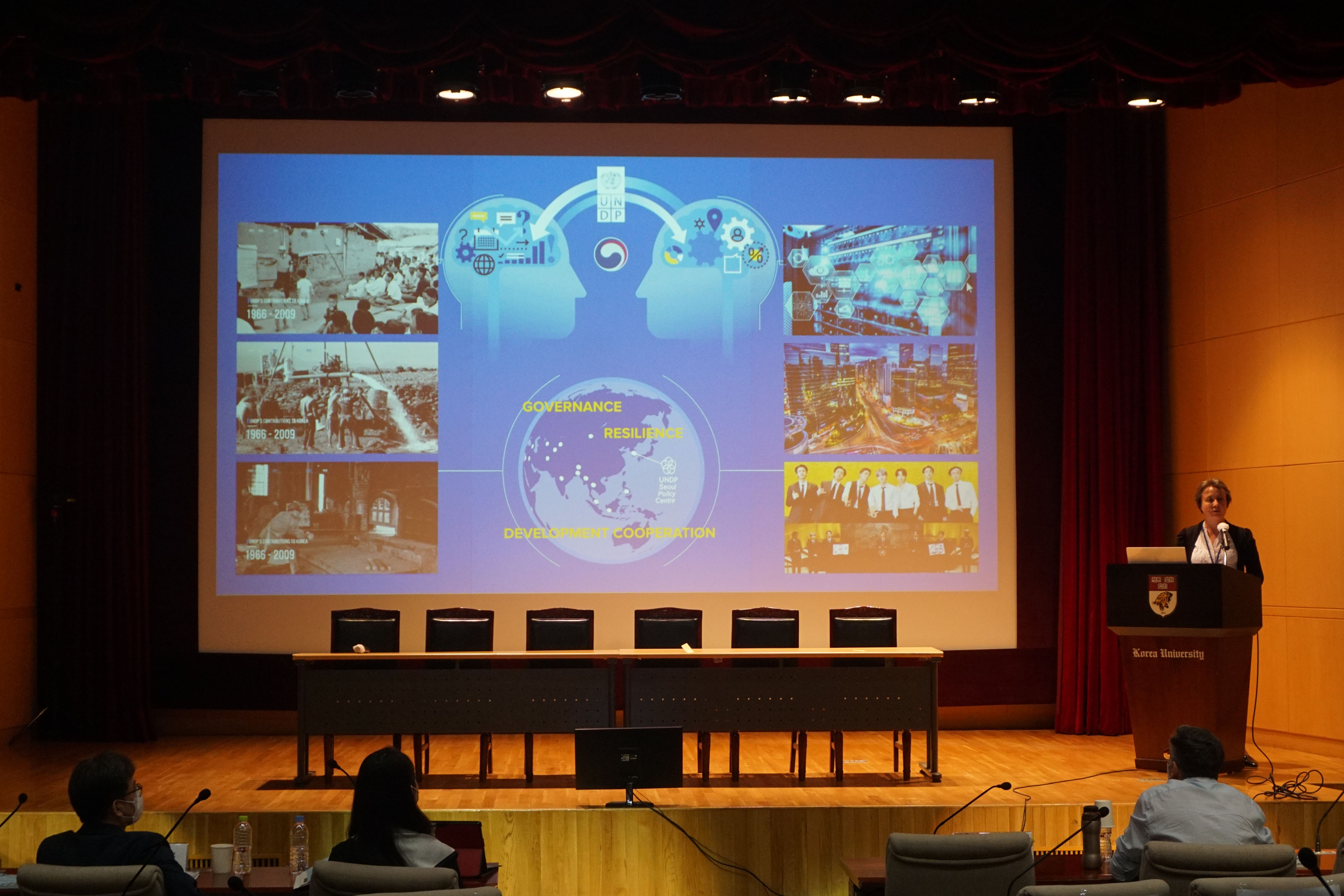
The UNDP Seoul Policy Centre (USPC) hosted a Technical Inception Meeting on 30 September 2024, bringing together the Seoul Metropolitan Government (SMG), Gaziantep Metropolitan Municipality (GMM), and the UNDP Türkiye Country Office to advance the SDG Partnership on Seoul’s Clean Construction System (CCS). This initiative aims to improve the efficiency, transparency, and accountability of construction processes in Gaziantep, particularly in response to the challenges posed by Türkiye's 2023 earthquake.
The discussion underscored the need to reform construction standards and policies to bolster resilience against future disasters and facilitate comprehensive reconstruction efforts. The SDG Partnership with Türkiye was launched in February 2024 by USPC and UNDP Türkiye to assist GMM in refining its construction processes through digital solutions inspired by the CCS. The CCS is SMG’s construction project management system with a public information disclosure portal that enhances efficiency, transparency, and accountability of the public construction management. Türkiye is the ninth country with which USPC has partnered to support the benchmarking of CCS into their local context.
Key participants included Dukyeong Jung, Director of the Seoul Metropolitan Infrastructure Headquarters; Ahmet Ertürk, Head of Foreign Relations for GMM; Youngchan Kim, Governance and Gender Team Lead at USPC; Ceyda Alpay, Head of Experimentation; Sertaç Berber, Consultant at UNDP Türkiye; Seongyeoub Kim, Executive Director of Bolim’s Service Business Division; and Alp Çevik, Software Engineer & Team Leader at Türkgüven. Bolim and Türkgüven are local companies involved in upgrading digital construction project management system in Seoul and Gaziantep respectively. Bolim has been invited to share its experience and expertise in the development and maintenance of CCS with Türkgüven.

Mr. Jung opened the session with a brief history of the CCS, outlining its evolution from a basic construction management system to one integrated with advanced IT features. He expressed hopes that it would enhance Türkiye’s construction administration and emphasized the importance of ongoing international cooperation. Mr. Ertürk highlighted Gaziantep's focus on urban rebuilding and development following the 2023 earthquake. He expressed optimism that the CCS would significantly support these efforts, benefiting both the construction and IT sectors.
Representatives from UNDP Türkiye and Türkgüven also discussed the ongoing localization process for the CCS in Gaziantep. Ms. Alpay highlighted the importance of accountability and transparency in Türkiye's recovery, noting practical challenges in digital governance. Mr. Berber discussed UNDP’s efforts to enhance local construction accountability through digital tools, outlining objectives for Gaziantep, including identifying necessary departments and creating an implementation roadmap. The project is currently focused on localizing and testing a system similar to the CCS, integrating additional information categories and citizen feedback. Initial reports have identified departmental training needs, laying the groundwork for effective monitoring and improving GMM's transparent governance. Mr. Çevik reported the progress on the construction system project, emphasizing Türkgüven's critical role in assessing the existing system and developing the implementation roadmap. Türkgüven has collected data through meetings with GMM departments to evaluate functionality and localization needs. A status report is expected by November, with key milestones set for finalizing the localization strategy in December and conducting training sessions in early 2025.
Overall, the inception meeting marked a significant milestone in the Seoul-Gaziantep SDG Partnership, establishing a foundation for GMM to implement a transparent and efficient system for urban development and reconstruction. The effort highlights a shared determination to promote accountability and drive sustainable progress toward a more resilient future.
* UNDP Seoul Policy Centre (USPC) shares Korea’s tested-and-proven policy tools with other countries through SDG Partnerships. SDG Partnerships provide a combination of support, including partnership development with Korean institutions, seed funding, technical assistance, and policy advisory services. It utilizes UNDP’s global network of country offices and the policy expertise and know-how of partner organizations.

 Locations
Locations














